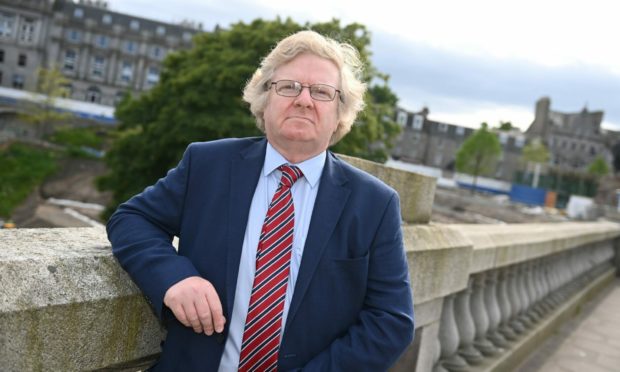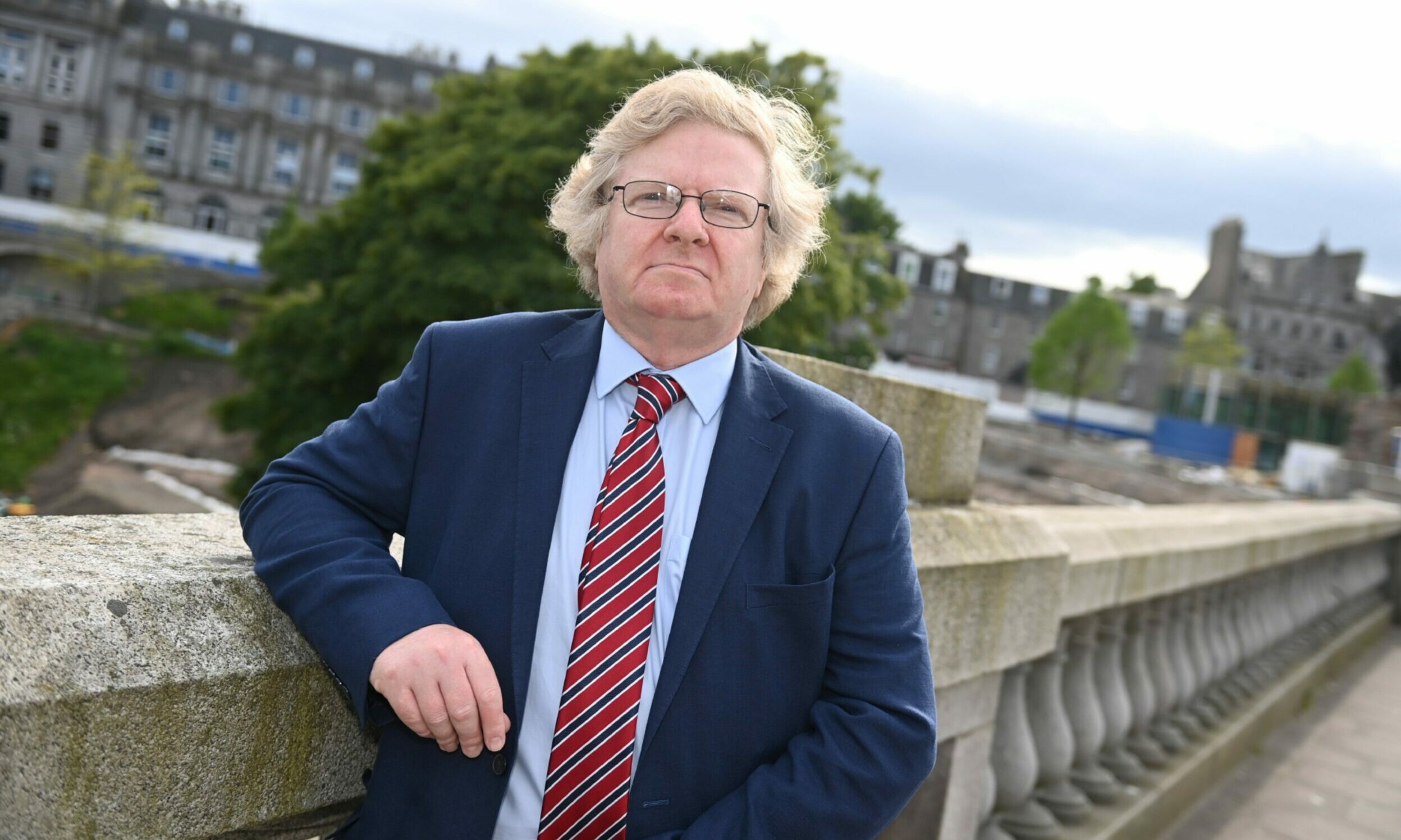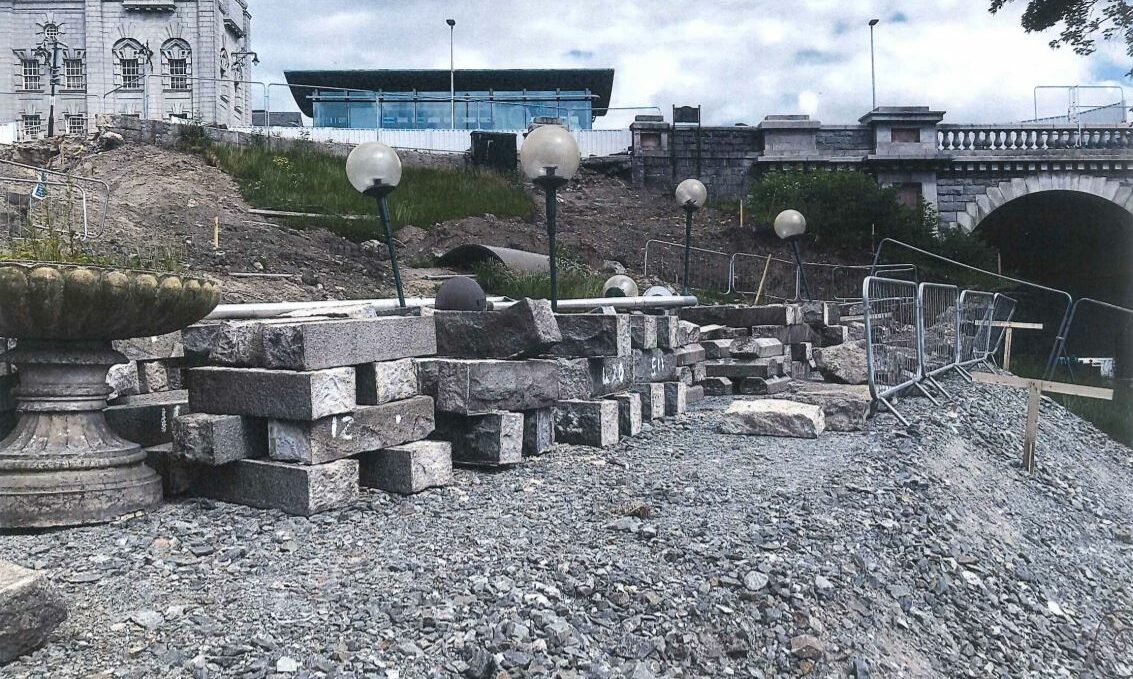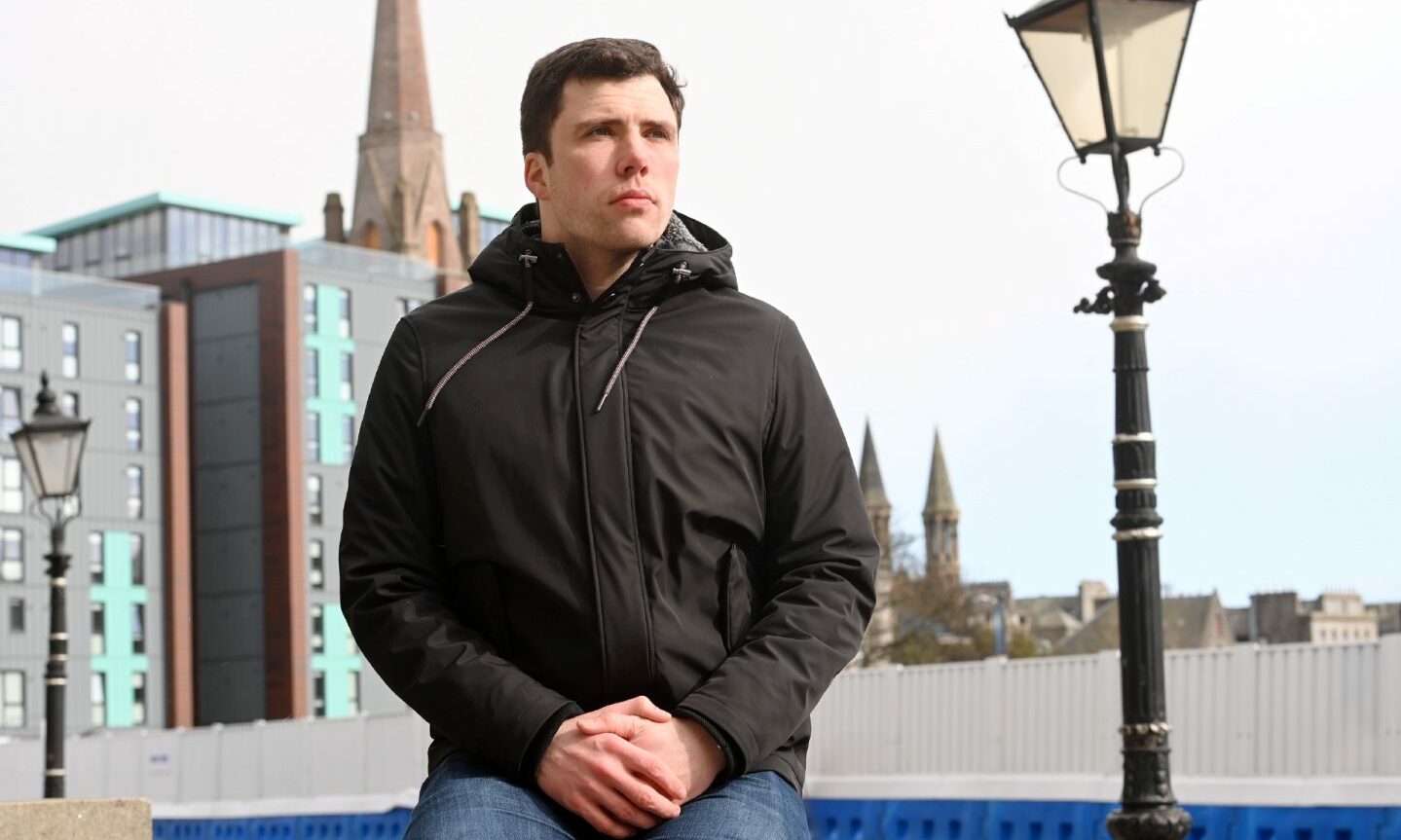Aberdeen councillors and Town House officials were at odds as they forensically examined how Union Terrace Gardens (UTG) granite ended up in a pub boss’ garden.
And one of the authority’s most senior figures has revealed he directly advised one city councillor from visiting an unapproved site where UTG masonry was suspected of being stashed.
Councillor Ian Yuill was at the centre of the row that became known as ‘granite-gate‘ – as he was approached by the man whose garden the stone was dumped in.
But now, resources director Steve Whyte has divulged he urged the Liberal Democrat “to be careful” in his snooping – as he anticipated the in-depth investigation that would follow.
Mr Whyte told councillors yesterday: “On the morning in question, I had about three missed calls from Councillor Yuill on my mobile.
“I phoned him back on my mobile to his mobile and when he explained the situation, and that he was planning on going out to the site, what I said was ‘I wouldn’t do that, I do not think that would be a good idea and you need to be careful because clearly there is an issue here that we need to get to the bottom of’.
“With me being on annual leave, and other senior officers being on annual leave, we weren’t going to be able to do anything until the Monday.”
Chief capital officer John Wilson did attend at the beginning of that next week, confirming to Aberdeen Journals that the granite – photos of which had been anonymously shared online – was in fact from UTG.
The next day, we tracked it down ourselves – as police were called in to determine if it had gone astray illegally.
But Mr Whyte’s statement drew ire from Mr Yuill’s Liberal Democrat colleague Martin Greig, who said: “He was not advised by Steve Whyte not to attend the site – he said he would not have gone against officer advice.”
After the meeting, Mr Yuill told us: “I thought very carefully before going to view the granite and took full account of the advice I received from council staff.”
Granite-gate: Why the UTG probe was needed
The council’s audit committee was tasked with seeking assurances on the whereabouts of the heritage materials removed from the beloved city centre gardens, as well as the ways of working that led to the lapse in security.
In June, stacks of the rock, as well as a globe street lamp from UTG, was discovered in the “unapproved location” in June – the garden of city businessman Mike Wilson.
Sub-contractor Graeme Cheyne Builders had left it there – breaching the council’s contract with main site bosses Balfour Beatty as well as planning conditions – in the rush to get finished on a Friday afternoon.
After police ruled out any criminal element to the story, councillors demanded Balfour Beatty carry out a full audit of all granite, lighting, heraldic shields, fencing and other masonry removed during the refurbishment.
A week later, all of the AWOL items were returned to UTG, but by then there had been huge public outcry.
Senior council brass have made peace with the contractor as nothing is missing – but have kept the threat of legal action looming, should “it ever become apparent that items are unaccounted for”.
They have also enforced a new criteria, considering would-be contractors’ credentials on heritage projects, as part of the application process for future projects.
And, in the immediate term, they have imposed a ban on the removal of any UTG masonry without council say so – to ensure it is taken to a safe and approved location.
Protected UTG granite already gathering dust in city quarry
Questions remain over how much of the historic stone from the Victorian park will be reused as building work for the £28.3 million facelift nears completion.
Top officials had tasked Balfour Beatty with finding out the whereabouts of the UTG granite and masonry – but could not yet answer how much would be reused and how much would be destined for a long stint in storage.
After questions from a number of councillors, all perplexed by the same issue, chief capital officer John Wilson offered to have a “reconciliation” with the contractors to “quantify what’s on-site, what’s been reused and what’s been taken to the quarries already as an interim measurement”.
His stop-gap report – before final reports on the reuse of granite come back to councillors at the end of the multi-million-pound project – could be issued within a fortnight.
Mr Wilson added that he would see that everything was done now and at the end of the project “to ensure everything adds up”.
Stone will be checked against a site survey carried out by Balfour Beatty when they took up work in the park in 2019.
And while the extent of granite not being reused would not be apparent until all building is complete, already it is piling up at the council’s Sclattie Quarry – with surplus taken away “on a monthly basis”.
Mr Wilson also rubbished claims that lorry loads of granite had been sent to north-east quarries to be chipped.
Chief executive Angela Scott moved to reassure councillors that they would be kept abreast of progress, which is usually reported back to another committee.
A hair’s breadth from a full-scale public inquiry-style meeting into UTG and granite-gate
Mr Yuill had initially removed himself from the meeting as his name featured in the reports under consideration so many times – but had then offered to stay to answer any questions from colleagues.
But administration councillors argued this would mean others involved in the saga, including main contractor Balfour Beatty and Mike Wilson, were not being allowed the same opportunity.
Conservative group leader Ryan Houghton even suggested delaying the meeting for a week to make time for any other involved parties to attend, if they wished.
The idea was thrown out over fears from audit convener Alex Nicoll that the meeting would be in danger of becoming a “board of inquiry”.
Having been willing to be grilled by councillor colleagues, Mr Yuill told us: “The question of others involved coming before councillors is not one for me.
“I am certainly happy to answer any questions people have and I have done so.
“But it is for the committee to decide how it gathers any more information.
“The important thing about today was that members had the chance to challenge council staff and to scrutinise information in front of them and importantly, to get some assurance about what would happen in future to ensure that something similar to this doesn’t happen again.”



